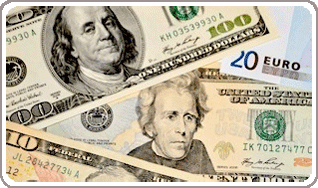

Hidden And Obscure Items Can Drive Your Credit Score Down
- Library fines
- Child Support
- Utilities, municipalities and telecommunications
- Public Records
Even though something as small as a library fine may be considered trivial, when it appears in your credit report, then you should begin to take it seriously as it can impact your credit score and your history. Here are some of the often overlooked sources which can have a negative impact on your credit score.
Library fines
Even small things such as library fines, if left unpaid and reported, show up in the credit report as an open account and impacting the score heavily. But before reporting these fines, libraries make it a policy to issue reminders and give the consumer a chance to clear payments. It is after more than 90 days that these unpaid dues are reported. FICO looks upon collection accounts as a serious offence and hence deals with them likewise.
Child Support
Child support, the FCRA has added them to their regulations since 2003 and they are treated at par with other outstanding debts but though it appears in the credit report as outstanding, it is not considered when the score is being calculated.
Utilities, municipalities and telecommunications
basic utilities such as water, gas and electricmunicipal services
cell phone payments, telephone and cable bills
Even though they are not typically included in your credit reports these creditors can have a great negative affect on your credit score. While they do not add points to your credit score if paid on time, they do decrease the score, if left unpaid and you are reported.
There are two common ways that companies and individuals can report your delinquency or late payment to the credit bureaus. Some companies, like banks, report to the credit bureaus directly while other creditors use a credit reporting service. Companies can also report your delinquency through collection agencies. Once your delinquent account is turned over to a collection agency, the agency will report this transaction to the credit bureaus and the “Collection Account” will show up on your credit report.
Public Records
Legal actions such as judgments, lawsuits, tax liens and bankruptcies will be recorded in the public records and end up in that section of your credit report. If you owe money to an individual, such as a landlord, he or she may bring your delinquency to the court as well.
The credit reporting agencies obtain public record information data from separate companies who are often sloppy in their record gathering, do not check actual court records, and don’t take the time to figure out who the records actually belong to. As a result both factual and erroneous entries may end up in your credit report and these potential errors can be very damaging to your credit score.
© 2011-2012 Checkcredit.com. All rights reserved
